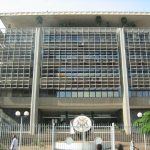By Ivan Munguongeyo
The recent admission by ex-Vision Group CEO Robert Kabushenga that “we can’t afford life; we are broke” is evidence that Uganda is broke. Uganda’s financial situation is concerning!
For example, according to Uganda’s central bank data, the country’s public debts stood at 66.1 trillion shillings (18.9 billion USD) at the end of April 2021, up 15.1 percent from June 2020, and the country intends to borrow again from the World Bank.
The Bank of Uganda attributed the increase to a 33.6 percent increase in domestic debts in its June 2021 state of the economy report. Public external debt increased by 13.0 percent, owing primarily to loan disbursements from multilateral and bilateral creditors.
Uganda, with a projected Gross Domestic Product of 35.17 billion USD by the end of 2019, and a population of 45.74 million people, has a disgraceful per capita income of $897. Ugandans, who live in Africa’s richest country, are among the poorest.
The normally honest Uganda Bureau of Statistics has taken the trouble to inform the world that, contrary to the 21.6 percent previously announced by ActionAid, 28 percent of Ugandans are poor.
Poverty is defined by economists as the lack of comfort and an insufficient supply of basic necessities of life. It is sometimes defined as the point at which deprivation makes bodily and physical efficiency impossible to maintain. In numerate terms, it has been variously put at living below $1.50, $2, or $2.50, per day.
The reason Uganda, a relatively rich country, has poor citizens is that state actors continuously design flawed macroeconomic, fiscal, and monetary policies that result in an inefficient economy.
That explains why the government would prefer to import petroleum products rather than effectively run local refineries or increase private sector participation in the refinery sub-sector of the downstream oil sector. It explains policy execution flaws in Uganda’s food production and security architecture.
This is accompanied by the nonsense envelope budgeting process, which arbitrarily allocates funds to expense heads based on the history of what was allocated in the previous budget period. The envelope budget is the opposite of zero-based budgeting procedure which requires verifiable rationale for budget allocations.
For example, macroeconomic policies fail to deliver the necessary physical infrastructure, but instead channel planning funds to support Big Government, which only ministers to the needs of state actors. Uganda is bankrupt only because there is no cash flow to support the enormous and excessive cost of governance.
Unfortunately, Uganda’s policymakers prioritize high bureaucratic employment over increases in capital assets that can boost GDP and thus increase public revenue through taxation.
The loss of productive power, a consequence of the dysfunctional infrastructure and heavy taxes on infant firms and businesses, has greatly reduced the rank of the middle class, who should have been a source of personal income tax revenue for government. If this continues, Uganda may remain forever broke!
Email: ivanmungu12@gmail.com







